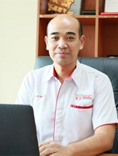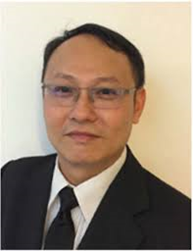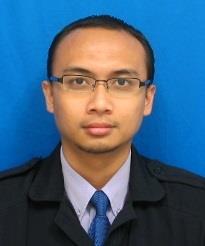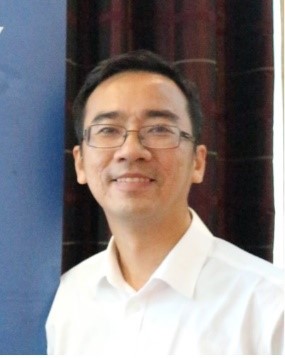

Speakers
Keynote Speakers

A. Prof. Jia Cui,
Shenyang University of Technology
Research area:
Analysis and operation of smart grid, Intelligent control, modeling and prediction of flexible load in distribution network, and energy management technology of Micro-grid.
Experience:
Jia Cui, born in 1987, is a Postdoctor, an Associate Professor, and the Departmental Leader in renewable energy science and engineering. His research interest includes analysis and operation of smart grid, intelligent control, modeling and prediction of flexible load in distribution network, and energy management technology of Micro-grid. E-mail:cuijiayouxiang@sut.edu.cn

Prof. DEFILLA Steivan
Tianjin University/School of Architecture, China
Research area: Sustainable Urbanization under the SDGs
Title: Engineering Net Zero in Cities - The Role of Green Finance
Abstract: The Race to Zero has become an important aspect of sustainability planning. No matter whether interpreted as GHG neutrality or carbon neutrality, the transition towards clean energy is in its focal point. The several landmark reports published by the IEA in 2021 convey the clear message that the energy transition is not a pathway towards austerity, but a pathway towards prosperity: +0.4% annual global GDP increase, six times more jobs created than jobs lost, adding an economy of the size of Japan to the world by 2050. But the journey along this pathway will only happen if capital investment in energy rises from 2.5% of world GDP at present to 4.5% of world GDP by 2030 and if the majority of this investment is spent on electricity generation, networks, and electric end-user equipment. The IRENA makes similar calculations and comes also to the conclusion that for the global finance market, this is doable. While an important contribution towards achieving this target will come from countries, cities are also important players. In their roles as regulators, planners, infrastructure operators, PPP partners, consumers and investors, they can use a whole set of economic instruments like local carbon markets, feed-in tariffs, renewable certificates, power purchasing agreements. Among the financial instruments, cities can participate or set up specific instruments for green investments, such as guarantees, insurance schemes, green bonds, green loans, green equity, and can use these to catalyze private investments.
Experience: Sustainable urban development became popular with the adoption of the Local Agenda 21 at the UN Conference on Environment and Development (UNCED) held in 1992 in Rio. Since then, local governments have been encouraged to analyse their development and steer it towards more sustainability. A holistic set of measurable targets has been adopted in the SDGs in 2015. Cities received their specific goal (SDG 11) and targets but are also strongly affected by all other SDGs. As the global carbon budget is being used up rapidly, leading to irreversible global temperature rise, cities and local governments are increasingly affected by disasters. They need to monitor not only the path towards more sustainability, but also towards better disaster resilience. In our recent research we have shown that if APEC cities want to combine disaster resilience with sustainability, they need to use disaster resilience as instrument for increasing sustainability, and for this, they need to improve the availability of local SDG and disaster resilience relevant data. For this purpose we have set up a specific data base for cities and municipalities.

Assoc. Prof. Razif Harun
Department of Chemical & Environmental Engineering, Universiti Putra Malaysia
Research area: Renewable Energy, Biochemical Engineering (Microalgae cultivation, Bioconversion of biomass, Biofuel, Biogas, Bioethanol)
Title: ISSUES & CHALLENGES IN MICROALGAE BIOFUELS
Abstract: The rapid depletion of fossil fuels and the uncertain global climate in the past decade have inevitably led to an increased commercial interest in renewable fuels. Biodiesel and bioethanol are viewed as attractive potential solutions to alleviate the existing dependency on petroleum-based fuels. Algae are a unique biomass feedstock for the sustainable production of biofuels. Algae, one of the fastest-growing photosynthetic organisms on earth, have biomass productivity rates higher than terrestrial plants. Benefits of algae over food crops include fast growth rates, less water intake, adaptation to various water sources (fresh, seawater, saline/brackish, and wastewater), high photosynthetic efficiency, carbon dioxide (CO2) bio-sequestration, phytoremediation, inexpensive cultivation techniques using non-arable land and short harvesting periods. Notwithstanding these benefits, algal biofuel development faces a few drawbacks, including low biomass densities and high operating costs for biomass generation and conversion. Although algal-based biofuels generate approximately 13% CO2 lower emissions from combustion relative to CO2 emissions from petroleum diesel, in terms of absolute emission levels, algal biofuels can be significantly high for full-scale applications. The development of biofuels from algal biomass has been significantly successful under lab-scale conditions. However, opportunities for commercial-scale applications should focus on addressing related environmental, technological, and economic drawbacks.

Prof. Fushuan Wen
Zhejiang University / School of Electrical Engineering
Research area:
1) power economics and electricity markets;
2) power system investment, planning and operation optimization;
3) smart grids and electric vehicles;
4) power system alarm processing, fault diagnosis and system restoration;
5) artificial intelligence applications in power and integrated energy systems
Title: Transmission Investment and Planning in Evolving Electricity Market Environment
Abstract:
Transmission investment and planning in an evolving electricity market are becoming increasingly complicated and challenging, and more uncertain factors have to be considered. In this talk, the following issues will be addressed:
1. Emerging problems in the restructured electricity market environment;
2. Features of transmission systems;
3. Challenges of transmission system planning in electricity market environment;
4. Management and regulation of a transmission planning project;
5. Investment and cost recovery in transmission expansion;
6. Transmission planning methods in electricity market environment.
7. Prospects for future research.

Professor/Department Head, Man-Chung WONG
Department of Electrical and Computer Engineering, University of Macau
Brief introduction: Man-Chung WONG received his B.Sc. and M.Sc. degrees in Electrical and Electronics Engineering from the University of Macau (UM), Macao, China, in 1993 and 1997. Then, he got his Ph. D. degree from the Department of Electrical Engineering, Tsinghua University, Beijing, P. R. China. in 2003. He is currently a professor in the Department of Electrical and Computer Engineering, and he was a visiting fellow at Cambridge University in 2014. Also, he is affiliated with the State Key Laboratory of Internet of Thing Smart City, University of Macau. He published four books and more than 170 technical journals and conference papers. He holds four U.S. patents and 8 Chinese patents. His research interests include integrated power electronics controllers, power electronics converters, power quality compensators, renewable energy, wireless power transfer, smart grid, and smart energy. Prof. Wong was a recipient of the Macao Science and Technology Invention Awards (2nd Class in 2018, 3rd Class in 2014 and 2012, respectively) and Yong Scientist Award from “Instituto Internacional De Macau” in 2000, Young Scholar Award from the University of Macau at 2001, Second Prize of 2003 Tsinghua University Excellent Doctor Thesis Award. He was IEEE TENCON Macao 2015 General Chair and is IEEE APPEEC Macao 2019 General Chair. He was Chair of IEEE Macau Section in 2014-2015 and the Chair of IEEE Macau PES/PELS Joint Chapter in 2016-2020. Since 2017, he has been the department head of Electrical and Computer Engineering, FST, University of Macau. He is currently the North Representative of IEEE Region 10 Power and Energy Society since 2015.
Speech Title: Parallel Power Quality and Renewable Solar Power Converter Researches for Smart Grid and Green Energy
Abstract: The talk topic is “Parallel Power Quality and Renewable Solar Power Converter Researches for Smart Grid and Green Energy,” which includes power quality issues, parallel power converters, development, and research trends. Several Parallel Power Quality and Renewable Solar Power Converter researches will be discussed as examples. Then, a final address will be given to deal with its combination with Smart Grid and Energy Internet in the future. Hopefully, the talk can give a comprehensive view of this technology, its state-of-the-art development, and its philosophy. Hopefully, the discussion for future research trends can help researchers clarify possible research paths. The speaker has investigated this Power Quality Compensator research area for more than 15 years and has published many papers in this area. According to the Scopus database information, the research group has been in the top 5 of this research area recently (2016-2022) in terms of top journal publication number for “POWER FILTER” in IEEE Transactions on Power Electronics, IEEE Transactions on Industrial Electronics, and IEEE Journal of Emerging And Selected Topics In Power Electronics.

Associate Professor/Director, Hidayat Zainuddin
Universiti Teknikal Malaysia Melaka
Brief introduction: Hidayat Zainuddin received his Bachelor's degree in Electrical Engineering from Universiti Teknologi Malaysia in 2003. He then obtained his Master of Science degree in Electrical Power Engineering with Business from University of Strathclyde, Glasgow, in 2005. He received his Ph.D. degree from University of Southampton in 2013. He has received almost RM 500,000 research grants as a principal investigator and almost RM 1.5 million as a co-researcher. Most of his research mainly towards the sustainability of electrical power system which are associated with green technology, condition monitoring and failure analysis for high voltage transformers. These include investigating the surface discharge behaviour on pressboard impregnated in mineral and ester oils, performance of mineral-ester oil mixture for transformer applications and design and development of optical fiber sensor for online monitoring of transformer oil for smart grid application. He has authored and co-authored more than 50 technical papers comprising journals and conference proceedings. He also has contributed in reviewing articles for many conferences and journals published by IEEE, IET, Elsevier and others.
Speech Title: Oil-filled Transformer: Mineral Oil or Ester Oil, which one is better?
Abstract: For many years, mineral oils (i.e., hydrocarbon-based fluids) have been successfully fulfilled high voltage requirements as insulating liquids in the energy industries. In power transformers, the widespread use of mineral oil offers dual functions, i.e., as a coolant and an insulator. Nevertheless, nowadays, there are increasing concerns on its disadvantages from ecological and sustainability point of view. Green-based policies and regulations have been introduced to promote and enforce environmentally sound and sustainable development. This has led to global efforts towards the development and improvement of environmentally friendly fluids as an alternative solution to replace the conventional mineral oil. The emergence of ester-based fluids (i.e., natural and synthetic ester oils) for oil-filled transformers has gained much attention from energy industries. Their advantages such as biodegradable, less flammable and comparable dielectric strength with mineral oil offer great opportunity for utilities to improve grid reliability, fire safety, reduce environmental impact and gain cost efficiencies. The presentation will highlight the pros and cons between ester-based and mineral fluids based on the international requirements.

Associate Professor, Lim Boon Han
Department of Electrical and Electronic Engineering, Lee Kong Chian Faculty of Engineering and Science, Universiti Tunku Abdul Rahman
Brief introduction: Dr Lim Boon Han is an Associate Professor at Universiti Tunku Abdul Rahman, Malaysia. He obtained his Bachelor of Electrical Engineering and PhD in optical engineering from the University Technology of Malaysia. His PhD was related to the reflectivity measurement of solar reflective materials using laser optics. During the training, he also gained some experience setting up the optical, control and mechanical systems of a gravitational wave detector. After his PhD study, his research crossed over concentrated solar thermal energy, sun-trackers, and photovoltaics (PV). He worked in China for 10 years, in both academic and industry. Initially, he continued the research of solar furnaces using non-imaging focusing heliostat (NIFH) with the spinning-elevation tracking mechanism at the University of Science and Technology of China. Later, he continued the research at a spin-off company where he led teams to a) build the early batch of government-subsidized solar power demo plants in China, b) invent and mass-produce the world's largest dual-axis sun-tracker, which the diameter is 35 m, c) improve and mass-produce high-temperature NIFH solar furnace to purify metallurgical silicon into solar-grade silicon feedstock. The solar furnace project was awarded the "China Top Ten Science and Technology Progress Awards 2009" by both the Chinese Academy of Science and the Chinese Academy of Engineering. After 2011, he focused on designing and improving the performance of PV power plants. In 2014, he returned to Malaysia, and now he focuses on high-resolution solar irradiance and its applications to optimize PV power plants design in the tropics. In professional organizations involvement, he was an active member (2015 – 2020) of the Global Young Academy (GYA), the Malaysia representative to the International Electrotechnical Commission (IEC) standards, TC82-WG3 (PV system), the honorary member of Malaysia Photovoltaic Industry Association (MPiA) and a working group committee on photovoltaic standards of Department of Standards Malaysia.
Speech Title: Solar Irradiance and Photovoltaic System Research in the Tropics
Abstract: Solar energy, as one of the modern renewable energy, is gaining popularity globally. It has come to the stage that different climates may need different types of photovoltaic (PV) modules to improve the harnessing efficiency of solar energy. The International Technology Roadmap for Photovoltaic (ITRPV) has projected an increase in the use of special PV modules for the dessert and tropical regions after 2020. Similarly, the optimal design and the techniques to improve the performance of PV plants in the tropics are essential nowadays because many of the current design techniques were originally developed in the non-tropic region. In this presentation, we would like to show the progress of a few projects that we developed for the applications in the tropics. They are 1) discrete-controlled water-cooled PV system, 2) optimal inverter sizing ratio for large-scale solar power plant, 3) module temperature estimation using time-specific and angle specific Ross coefficients, and 4) imputation of solar irradiance missing values. All the projects are related to the characterisation of solar irradiance database in the tropics and it concluded that high-resolution solar irradiance data collection is important for increasing the accuracy to yield optimal design or to improve the performance of PV plants in the tropics.
